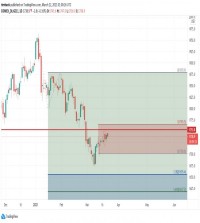|
Opalesque Industry Update - Growing investment sophistication is helping to drive a rise in risk appetite at family offices and an increased focus on alternative assets, new global research from Ocorian, the specialist global provider of services to high-net-worth individuals and family offices, financial institutions, asset managers and corporates, shows. More than three out of four (76%) questioned believe increasing sophistication at family offices is leading to more staff carrying out more sophisticated deals and having to strengthen their operational infrastructure. That is contributing to an increased risk appetite - around 66% questioned say their organisation's risk appetite will increase in the next 12 months, Ocorian's study among family members, senior family office employees and intermediaries working for family offices with total wealth of $68.26 billion found. Just 7% believe their organisation's risk appetite will decrease while 27% say it will stay the same. European equities, emerging market equities and private equity are the most popular asset classes that family office fund managers expect to increase allocations to in the next 12 months. There is a growing appetite for increasing family office exposure to alternative assets - all of those questioned agreed it is a long-term trend - with 65% saying the UK is leading the way on exposure to alternatives based on where assets or where family offices are based. More than half (54%) point to the Middle East while 48% highlight the European Union. Around a third (31%) say Africa but only 24% the Americas. The study in 13 countries or territories including the UK, UAE, Singapore, Switzerland, Hong Kong, South Africa, Saudi Arabia, Mauritius and Bahrain found increased regulation around riskier and more specialist asset classes is the main reason for increased risk appetites ahead of any investment views. Around three quarters (73%) pointed to improved regulation while 60% point to increased transparency. Just half (53%) say they believe markets are ready to recover while 39% say family offices have been in cash too long. There is however a need for regulatory support - just one in six (16%) questioned believe they are in a strong position to meet regulatory demands amid rising complexity while 56% say they are in quite a strong position. More than a quarter (27%) believe their ability to meet regulatory requirements is average. That transformation is visible in markets such as Singapore, where tax incentive schemes for single family offices under Sections 13O and 13U of the Income Tax Act require the employment of at least two or three investment professionals to qualify. These conditions encourage family offices to expand their teams, deepen investment expertise, and strengthen operational infrastructure in line with their increasingly sophisticated strategies. Andrew Ho, Regional Head, Private Clients, APAC, at Ocorian said: ""Family offices have significantly strengthened their operations recently, recruiting more staff and improving infrastructure as they become more sophisticated organisations carrying out more complex trades. "In Singapore, this trend is reinforced by the government's tax incentive schemes for single family offices, which require the employment of at least two or three investment professionals as part of qualifying for the incentives. These policies not only encourage greater professionalisation but also ensure that family offices have the in-house expertise to manage increasingly sophisticated investments. "Improvements in regulation around riskier assets are a key factor in this transformation, but at the same time, family offices appreciate they need more regulatory support if they are to make the most of the potential opportunities." |
Industry Updates
Study reveals growing investment sophistication at family offices drives risk appetite
Wednesday, August 27, 2025
|
|





 RSS
RSS








